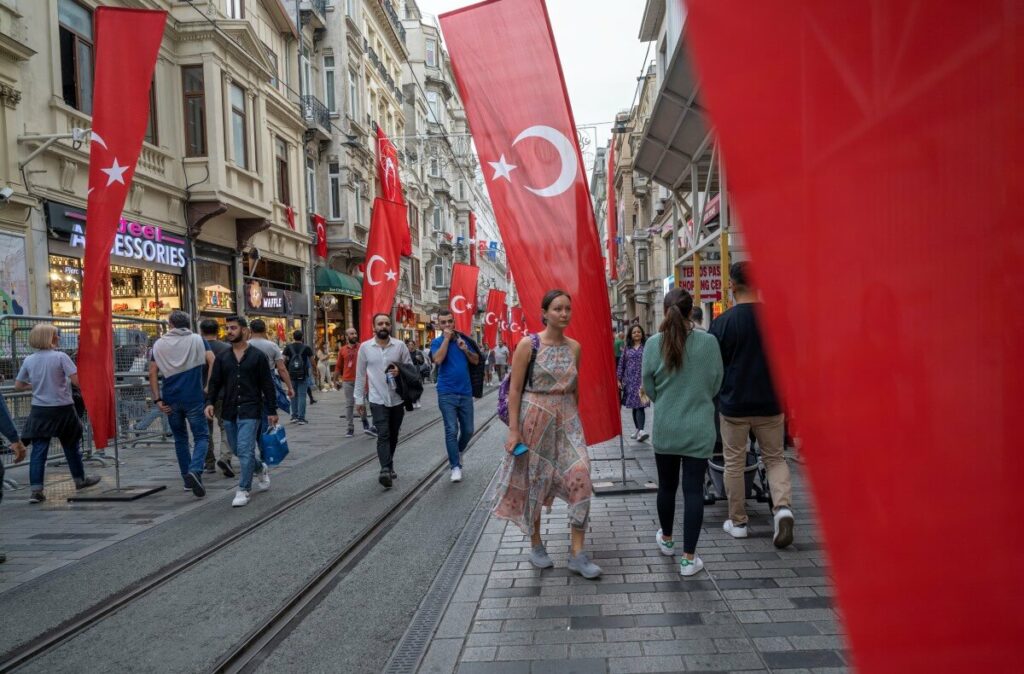A recent survey conducted by the Konda polling company for Turkey’s Human Rights Association (İHD) revealed that Turks believe women and low-income individuals are the groups most affected by human rights violations in the country, the Bianet news website reported on Thursday.
The results of the “Perception of Human Rights in Turkey” survey, conducted on 2,915 people across Turkey between May 17 and 19, were shared with the public during an event at the association’s İstanbul branch on Thursday.
Survey results showed that 38 percent of the public believes that the poor are victims of human rights violations, while the same percentage thinks that women are the most affected by human rights violations.
Among those who attended the event were Gülseren Yoleri, head of the İstanbul branch, İHD co-chairperson Eren Keskin and central committee member Tuğba Kahraman.
Over the past several years Turkey has been suffering from a deteriorating economy, with high inflation and unemployment, making it more difficult for low income families to meet their basic needs, while femicides and violence against women are other chronic problems in Turkey, where women are killed, raped or beaten almost every day.
Many critics say the main reason behind the situation is the policies of the Justice and Development Party (AKP) government, which protects violent and abusive men by granting them impunity.
The survey also revealed that 50 percent of Turks think politicians are responsible for the human rights violations in Turkey, while 47 percent believe that they occur due to political reasons.
“This creates the perception that the government’s divisive language and practices, which include discriminatory speech and hate speech, lead to human rights violations,” the association stated in its written report.
The survey further revealed that 65 percent of respondents are unsatisfied with the functioning of the law and the judiciary, 67 percent fear that an impartial decision will not be reached if they are tried by a Turkish court and 40 percent do not trust anyone regarding the protection and promotion of human rights.
Turkish judicial officials frequently face allegations of corruption and bribery as well as widespread criticism for their perceived lack of independence under the rule of President Erdoğan’s government.
Erdoğan is accused of exerting absolute control over the judiciary thanks to vast powers granted to him by a presidential system of governance.
The public rates the functioning of democracy in Turkey at 3.7 out of 10, while it gives the government a score of 2.5 out of 5 regarding the protection of human rights, according to the survey. Thirty-five percent of the population believes that the government is primarily responsible for ensuring and protecting human rights, while 29 percent feel the same about state institutions. Moreover, four out of five people consider the work carried out by human rights defenders to be “valuable.”
“In light of this public opinion research data, we see that over the past three years, the government has been unable to implement its Action Plan on Human Rights. Instead of achieving progress in access to justice, fair trial, equality, freedom, transparency and fundamental rights and freedoms, a climate of distrust and fear has been created within society,” the association concluded.
Commenting on the survey results during Thursday’s event, Keskin said the most significant takeaway from the survey is that violence has become deeply internalized in Turkey.
“I believe what emerges here is that the Republic of Turkey is violating all the international treaties it has signed. The state … is not being [properly] monitored by the European Union,” she added.
Yoleri also said the survey showed that politics has a significant influence over everything in Turkey, highlighting the expectation for state protection in terms of human rights.

